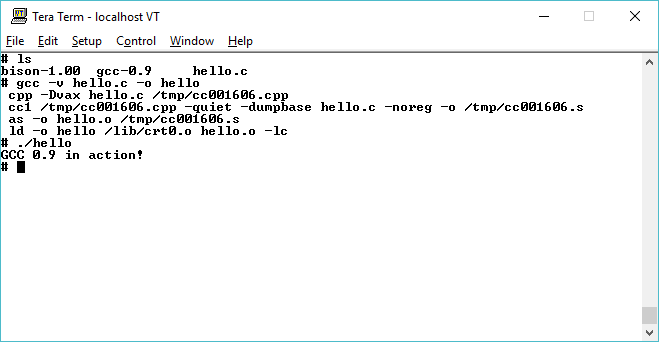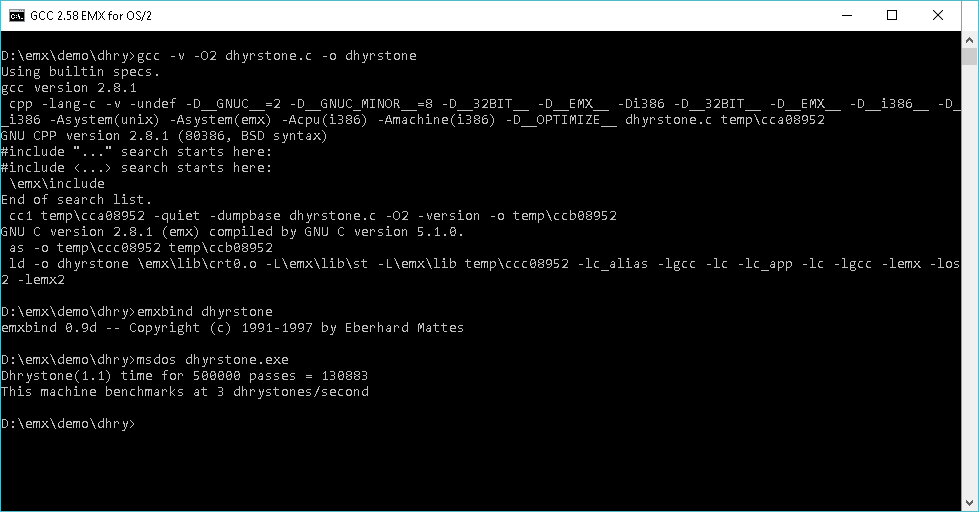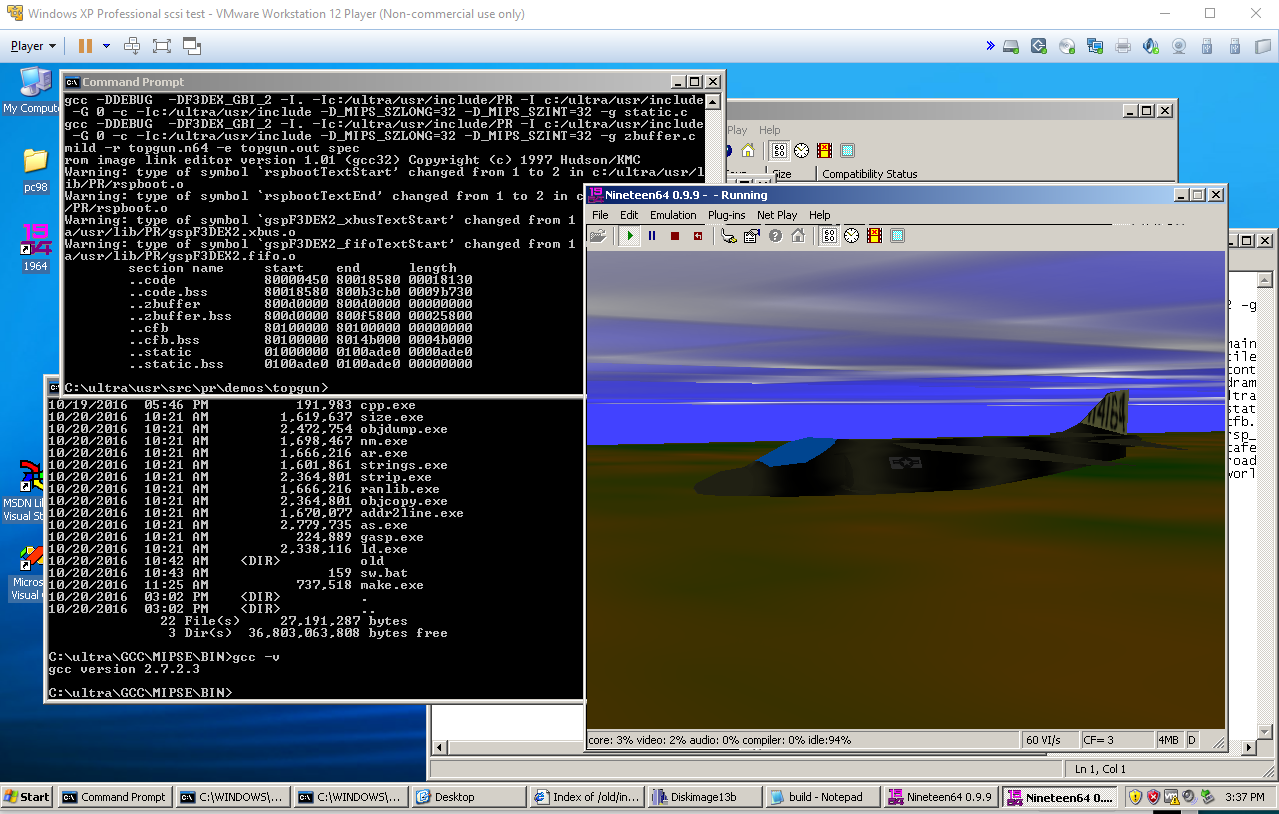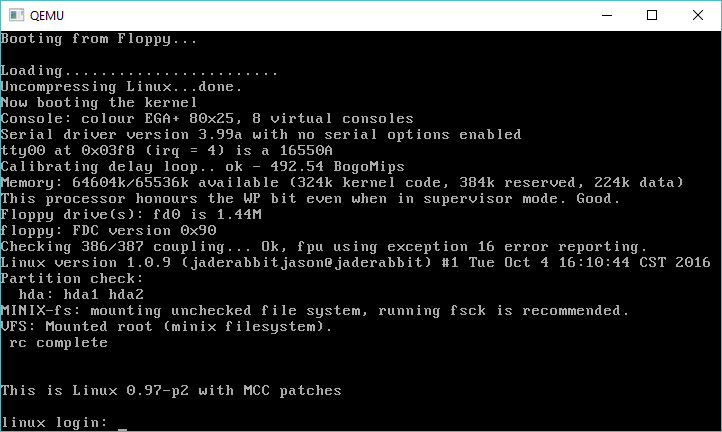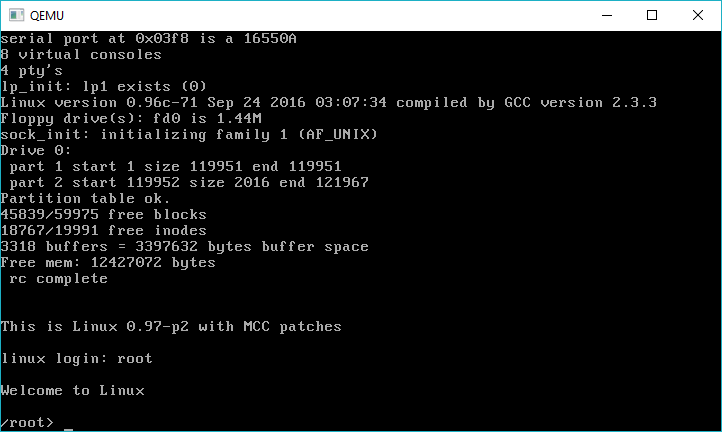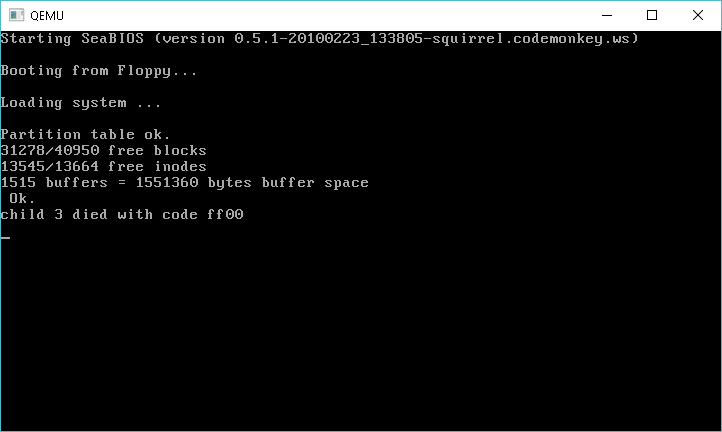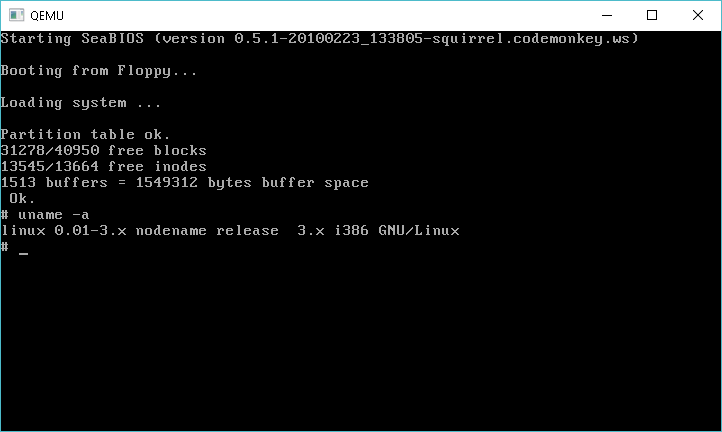I cannot understand why you want this, or why I’m even going to do it. Â At this point in GCC history the winnt-3.5 target had been dumped in favour of going all in with Cygwin. Â So yeah, this does not either clearly configure, or compile. Â But a little bit of mashing files, and I have it at least compiling some assembly that can be translated into an object file that a later version of MinGW can actually compile.
All I’ve built is the gcc driver, the cpp pre-processor, and the cc1 aka C backend.
D:\proj\gcc-3.0.4\gcc>xgcc -c -v hi.c
Using builtin specs.
Configured with:
Thread model: single
gcc version 3.0.4
cc1 -lang-c -v -iprefix ../lib/gcc-lib/i386-winnt35/3.0.4/ -D__GNUC__=3 -D__GNUC_MINOR__=0 -D__GNUC_PATCHLEVEL__=4 -Dunix -DWIN32 -D_WIN32 -DWINNT -D_M_IX86=300 -D_X86_=1 -D__STDC__=0 -DALMOST_STDC -D_MSC_VER=800 -D__stdcall=__attribute__((__stdcall__)) -D__cdecl=__attribute__((__cdecl__)) -D_cdecl=__attribute__((__cdecl__)) -D__unix__ -D__WIN32__ -D_WIN32 -D__WINNT__ -D_M_IX86=300 -D_X86_=1 -D__STDC__=0 -D__ALMOST_STDC__ -D_MSC_VER=800 -D__stdcall=__attribute__((__stdcall__)) -D__cdecl=__attribute__((__cdecl__)) -D__cdecl__=__attribute__((__cdecl__)) -D__unix -D__WIN32 -D__WINNT -D__ALMOST_STDC -D__cdecl=__attribute__((__cdecl__)) -Asystem=unix -Asystem=winnt -D__NO_INLINE__ -D__STDC_HOSTED__=1 -Acpu=i386 -Amachine=i386 -Di386 -D__i386 -D__i386__ -D__tune_i386__ hi.c -quiet -dumpbase hi.c -version -o C:\Users\jason\AppData\Local\Temp\ccpflisr.s
GNU CPP version 3.0.4 (cpplib) (80386, BSD syntax)
GNU C version 3.0.4 (i386-winnt35)
compiled by GNU C version 5.1.0.
ignoring nonexistent directory "../lib/gcc-lib/i386-winnt35/3.0.4/include"
ignoring nonexistent directory "../lib/gcc-lib/i386-winnt35/3.0.4/../../../../i386-winnt35/include"
ignoring nonexistent directory "D:/pcem/building/MinGW/msys/1.0/local/include"
ignoring nonexistent directory "NONE/include"
ignoring nonexistent directory "D:/pcem/building/MinGW/msys/1.0/local/lib/gcc-lib/i386-winnt35/3.0.4/include"
ignoring nonexistent directory "D:/pcem/building/MinGW/msys/1.0/local/lib/gcc-lib/i386-winnt35/3.0.4/../../../../i386-winnt35/include"
ignoring nonexistent directory "/usr/include"
#include "..." search starts here:
End of search list.
hi.c: In function `main':
hi.c:3: warning: return type of `main' is not `int'
as --traditional-format -o hi.o C:\Users\jason\AppData\Local\Temp\ccpflisr.s
D:\proj\gcc-3.0.4\gcc>gcc hi.o -o hi
D:\proj\gcc-3.0.4\gcc>hi
Hello from GCC 3.0.4
So there you go, mysterious internet user! Â Download my source dump with binaries in the tree because I’m lazy.


